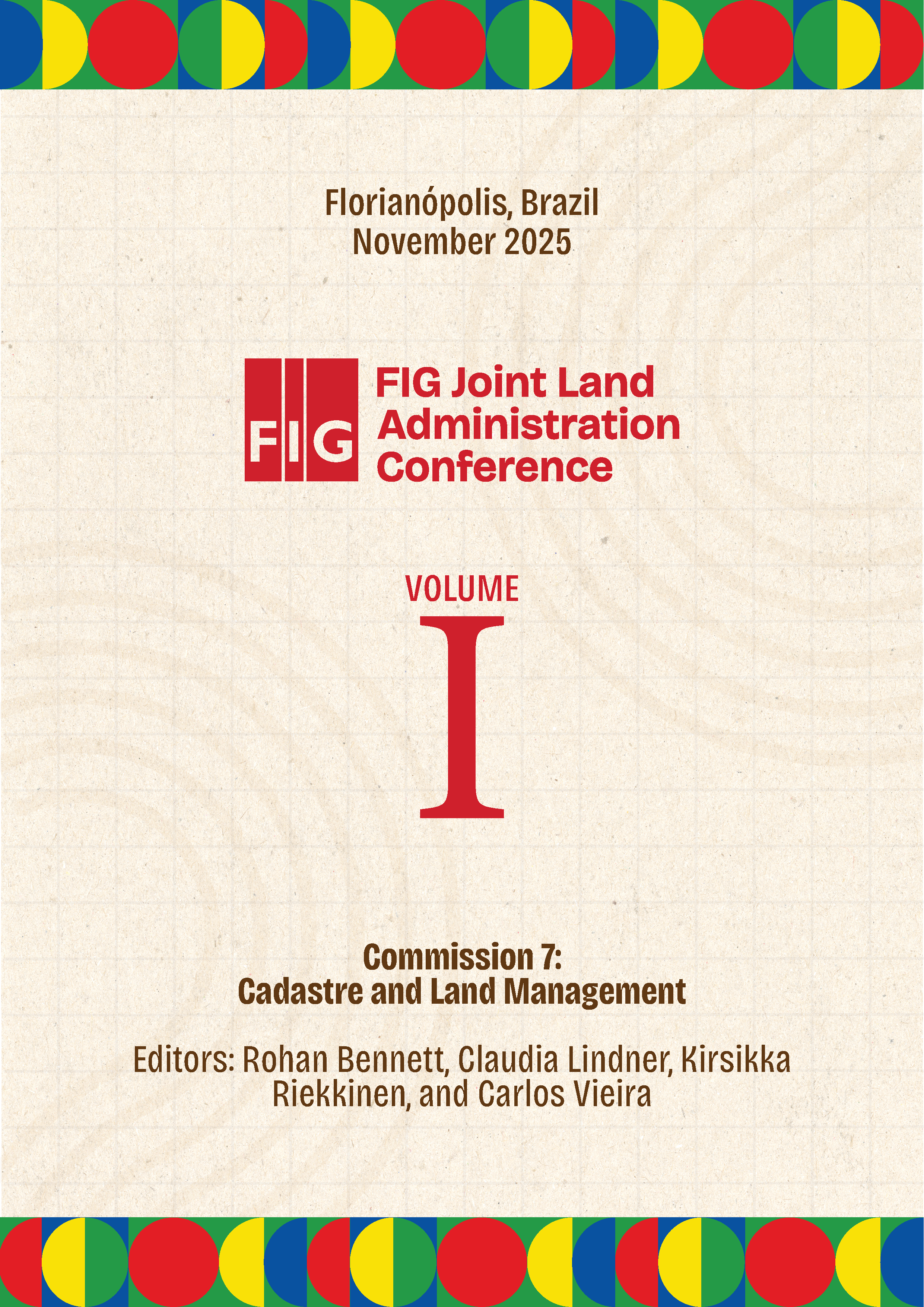Fit-for-Purpose Land Administration: Status, Success, and Scaling for Sustainable Development
Palavras-chave:
FFPLA, Land Administration, Scaling, Sustainable DevelopmentResumo
This paper presents an overview of the Fit-for-Purpose Land Administration (FFPLA) approach, examining its current status, implementation successes, and strategies for scaling to address global land tenure challenges. FFPLA prioritizes flexibility, inclusivity, and speed in securing land rights, particularly for marginalized communities, aligning with the Sustainable Development Goals (SDGs). Through analysis of case studies from Rwanda, Mozambique, and Benin, the paper highlights key lessons, including the importance of political will, participatory methodologies, technology integration, and capacity building. It also addresses challenges such as professional resistance, legal framework adaptations, and resource constraints. The paper proposes strategies for mainstreaming FFPLA, emphasizing public-private partnerships, digital transformation, and adaptation of legal frameworks. Emerging trends like AI, crowdsourcing, and spatial data infrastructure are explored for their potential to enhance FFPLA scalability. Ultimately, the work advocates for a renewed commitment to land tenure security, urging policymakers, practitioners, and researchers to advance FFPLA for equitable and sustainable development. This work contributes to the discussion on integrated land administration for climate resilience by promoting efficient, inclusive, and adaptable land management practices essential for sustainable development.


